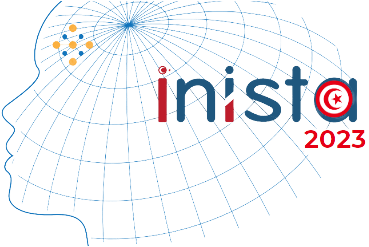LMNLP 2023: Development of Language Models for natural language processing tasks
A language model (LM) is the basic part of Natural Language Processing (NLP). It’s a statistical and probabilistic technique that analyzes the pattern of human language and determines the probability of a given sequence of words occurring in a sentence to provide a basis for their word predictions. It is used for a variety of NLP tasks such as audio to text conversion, speech recognition, sentiment analysis, Big Data or small data sets analysis, summarization, machine translation and question answering, etc.
Recently a Large, pre-trained transformer-based Neural language models have changed the Natural Language Processing (NLP) field to solve tasks via pre-training then fine-tuning, prompting, text generation or generate data for training augmentation approaches, etc..
This special session aims to identify and explore the current challenges in Language Models Development. The goal is to to provide an overview of the new research being carried out in the NLP area focusing on emerging Language models, machine learning, deep learning methods and approaches for single and multiple language learning, understanding, generation and grounding, question answering and information retrieval, as well as applications of them to different domains like e-health, e-learning and e-legal.
Finally, this special session aims to gather researchers,developers, and all those working in these fields of research to share their ideas and to discuss their work as well as perspectives on future directions in this exciting field. Original contributions are sought, covering the whole range of theoretical and practical aspects in this research area.
LMNLP2023 has the goal of a broad technical program. Relevant topics for the Session include, but are not limited to, the following areas (in alphabetical order):
Topics:
- Big Data Management
- Big Text Mining and Information Extraction
- Big Data Analytics and Information Retrieval
- Artificial Intelligence
- Chatbots
- Computational Social Science and Cultural Analytic
- Data analytics and mining for decision support
- Deep-Learning, and Machine Learning for NLP
- Dialogue and Interactive System
- Efficient Methods for NLP
- Interpretability and Analysis of Models for NLP
- Linguistic Theories, Cognitive Modeling and Psycholinguistics
- Machine Translation and Multilingualism
- Phonology, Morphology and Word Segmentation
- Question Answering
- Resources and Evaluation
- Semantics: Lexical, Sentence level, Textual Inference and Other areas
- Sentiment Analysis, Stylistic Analysis, and Argument Mining
- Summarization
- Cognitive semantics,
- Logics of language,andLanguage modeling,
- Computational linguistics (lexicology; morphology; syntax; semantics),
- Domain ontologies, linguistic ontologies,
- Knowledge processing,
- Topic Detection
Template: Papers must be prepared using IEEE templates for conference proceedings (pending).
Page Limit: Papers have a maximum page limit of 6 pages including references and graphs. INISTA will offer the option to buy a limited number of extra pages for submission (there will be a charge of 100 euros per extra page).
Language: The official language for the symposium is English.
Important notes:
- Submissions must be original and should not have been published previously or be under consideration for publication while being evaluated for this
conference. - Authors are invited to submit their papers through EasyChair and select the track: LMNLP 2023 – Development of Language Models for natural language processing tasks.
- All accepted papers must be presented by one of the authors who must register for the conference and pay the fees. Papers included in the proceedings will be submitted to IEEE Xplore only if the paper will be presented at the symposium by one of the authors.
Prof. Rim Faiz
Department of Computer Science
IHEC, University of Carthage, Tunisia
Laboratory LARODEC
E-mail: [email protected]
Dr. Shayma Boukari
Department of Computer Science
ISG, University of Tunis, Tunisia
Laboratory LARODEC
E-mail:[email protected]
Dr. Eya Hammami
Department of Computer Science
ISG, University of Tunis, Tunisia
Laboratory LARODEC
E-mail:[email protected]
- Full Paper Submission: June 15th, 2023
- Notification of Acceptance:
July 1st, 2023July 20th, 2023 - Camera-ready Submission & Registration:
July 10th, 2023July 30th, 2023


